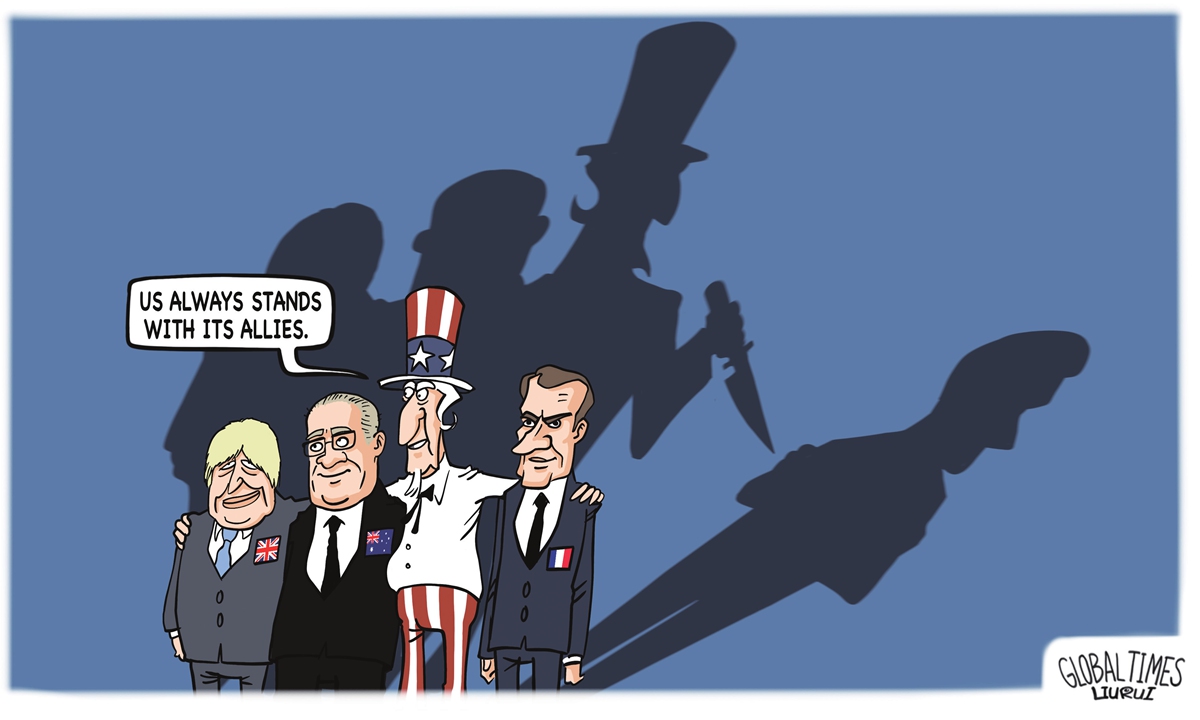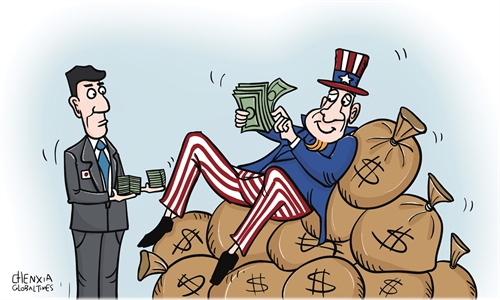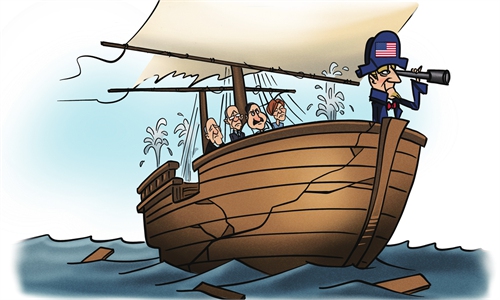
Illustration: Liu Rui
The US State Department announced Friday that it approved the sale of four Lockheed Martin combat frigates for $6.9 billion to Greece, France 24 reported. This happened after Greece and France reached a memorandum of understanding about a frigate deal in late September.On Saturday, France responded by saying that a contract for Greece to buy three French frigates had been initialed days ago, "scuppering a competing offer from the United States the day before," according to the France 24 report.
Although this time it seems the US has failed to sabotage France's deal for its own benefits, what Washington has done is outrageous to its allies.
The US has a track record of sacrificing the interests of its allies to preserve its own interests. Back in September, the US, the UK and Australia signed the AUKUS pact, forcing the submarine deal previously reached between France and Australia to be canceled. Instead, Australia sought the US' and UK's help to develop submarines. This was a shocking event to US allies and has led to a strong reaction from France, a traditional US ally. The French foreign minister called the incident "a stab in the back," while France recalled its ambassador to the US for the first time since the establishment of diplomatic relations.
In the eyes of the US, "America First" will never change, and US allies can be betrayed anytime. Therefore, as the rifts between the US and France grow, Paris will increase its efforts to encourage the autonomy of the European Union (EU). It may even tries to seize the US' traditional weapons market in the Middle East, commented Chinese military expert Song Zhongping.
Cui Hongjian, director of the Department of European Studies, China Institute of International Studies, agrees with Song's view. "After France takes over the presidency of the EU Council in the first half of next year, the country will strengthen its promotion of Europe's strategic autonomy," he said.
Cui believes that the US' recent attempt to sabotage France's deal with Greece shows that Washington is now very desperate in many ways. This validates Europe's fear that "America First" that "flourished" under the Donald Trump administration remains despite the end of Trump's presidency.
Although the Biden administration promised to return to multilateralism and repair its alliance, the US policy of "America First" has remained the same. US interests have always been the priority of the US when it deals with its allies.
In Cui's opinion, the US alliance system is actually Washington's practical, strategic tool. "The US definitely wants to run the show, while its allies only follow and obey it. But some European countries are no longer willing to do so anymore. They now seek to make the interests of both Europe and the US on an equal footing, rather than the former being completely subordinate to the latter.
According to French President Emmanuel Macron, the pact signed by France and Greece back in September "contributes to… the strengthening of Europe's strategic autonomy and sovereignty." However, it is clear that Europe's strategic autonomy is threatened by US hegemony and bullying. According to Song, promoting the division of NATO, creating a European army, and trying to seize the US' weapons markets are all possible reactions from Paris in the face of Washington's untrustworthy behaviors. And these are exactly what Europe should do too.



